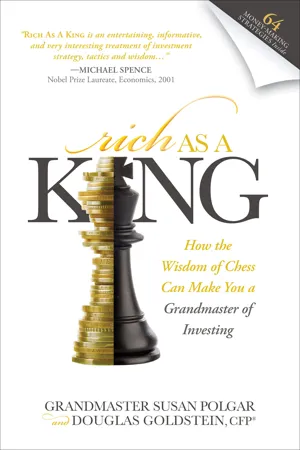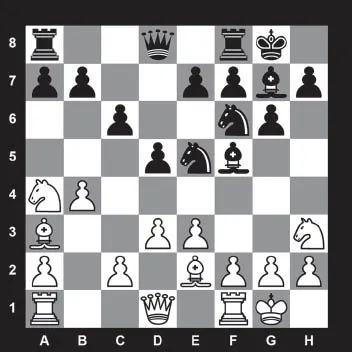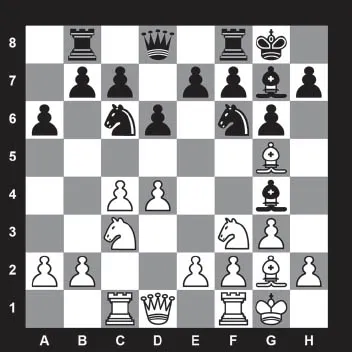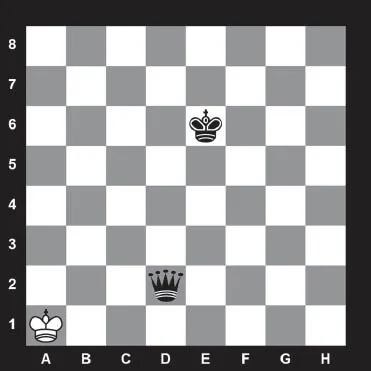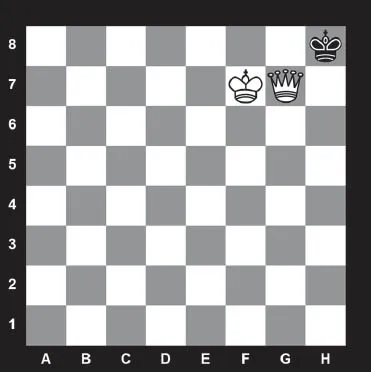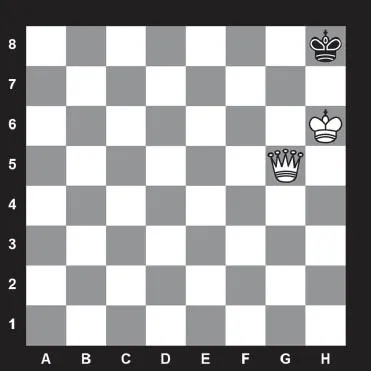![]()
PART D
Getting Rich
Using Chess
Strategies
![]()
| CHAPTER IX 64 Strategies to
Make You Rich as a King |
The Game of Chess is not merely an idle amusement; several very valuable qualities of the mind, useful in the course of human life, are to be acquired and strengthened by it, so as to become habits ready on all occasions.
—Benjamin Franklin
For hundreds of years, chess coaches around the world have taught their students the following sixty-four lessons. At various times in your life, some or all of them will probably apply to your personal financial decision making, too. By adhering to the chess principles below when handling your money, you can develop skills, practical knowledge, and the motivation needed in your quest to become as “rich as a king.”
1. Every move must have a purpose
Excellent chess players make sure that every move they perform brings them one step closer to achieving their goal. Conversely, amateur players, incapable of developing and executing a strategy, frequently reposition a piece randomly on the board when they have no idea of what to do. Different personalities may err in this way for a variety of reasons. As Nobel Prize winning economist Daniel Kahneman points out, “Individuals who invest for themselves by and large lose money . . . because they are overconfident.” Investors (and male ones in particular) want to appear like shrewd traders, so they often buy or sell some stock just to look good. Their overconfidence fools them into believing in their own aptitude. Ultimately, though, their moves frequently have no purpose.
2. Don’t feel money is burning a hole in your pocket
Everyone suffers from the “grass is greener on the other side of the fence” syndrome, and when folks park their cash in money markets and bank deposits, regardless of the yield they receive, they feel they should be earning higher rates on those funds. The urge to find greater returns often drives them to place their money in inappropriately higher-risk securities. But you don’t have to make an investment just because it’s there. Sometimes you should do a “waiting move” in chess if you have no better tactic available. Likewise, you can hold cash as a “strategic asset,” waiting until you find a truly preferable alternative.
3. Develop purposefully, and not just for development’s sake
When you make an investment choice, make sure that your move will actively advance your overall goal. For instance, chess players “develop their pieces” early in the game. This expression refers to activating the bishops and knights so that they can enter the fray on the board instead of remaining tied to their own back row. However, developing pieces does not mean simply shifting them from one sector of the board to another. Coordinate the motion of the bishops and knights in the same way that you would coordinate your stocks and bonds. Think of each move not only as a solitary investment, but as part of the bigger plan.
Take a look at the illustration of these two chessboards. Both of them show a game near the end of its opening phase. In the amateur game on the left, White has developed its pieces but has no particular strategy. Black, on the other hand, has coordinated its knights and bishops, creating a powerful force in the center of the board. Compare that to the grandmaster game (Polgar vs. Computer, 1995, Israel) where, by move #9, both sides had developed and placed their pieces purposefully so that each one was working with the other to attack the opposition’s ranks. (In the professional game, both sides played aggressively throughout the long 93-move match. In the end, the computer resigned when it realized it had no chance of saving the game.)
Amateur game
Polgar vs. Computer
To develop your stock portfolio purposefully, ask yourself the following eight questions before making any purchase:
How will this stock complement the others in my portfolio?
Do I understand the business?
Why will this stock go up in value?
Which events would hurt the stock price?
Can the company easily handle its debts?
How will changes in the overall economy affect this company?
If I buy it now, at what price will I consider selling it?
How does the company perform relative to its competitors?
4. Accumulate small advantages
Whoever sees no other aim in the game than that of giving checkmate to one’s opponent will never become a good chess player.
—Grandmaster Max Euwe, World Chess Champion (1935-1937)
Many chess books have been written about the concept of accumulating small advantages until you win. But look no further than one of the most basic lessons of chess tactics to see this lesson come to life. New chess students often start with an exercise in which they have a king and queen and their opponent has only a king. The board might look like this:
Inexperienced players might never find a way to force the black king against a wall in order to reach checkmate. Checkmate could look something like this situation below (where the black king is in check and has no place to run):
Frequently, amateurs will mess up, causing a stalemate. You cannot lose if your opponent only has a king left because one king cannot checkmate another. However, if White forces the black king into a situation as seen below that is not check, but where the black king cannot make any legal moves (meaning a move where it won’t put itself in check), this situation is known as a “stalemate,” and in tournaments both sides earn half a point. Look at the board below. It’s Black’s turn, but the king cannot make any legal move. White has squandered its winning position and, instead of checkmating Black and winning a full point, has ended up with only half a point for a stalemate.
Black to move. Stalemate since Black
is both not in check and cannot move.
Those who haven’t studied the tactics of using the combined effort of a king and queen to beat an opponent who has only a king might end up chasing the enemy king around the board, never making mate. However, those who know the process will win every time. White must slowly compel Black towards the side. Every white move pushes the black king a bit closer to the wall, and with the white king and queen cooperating, they can reduce the squares available to Black by creating a checkmate net. White will succeed in this technique by accumulating many small advances. After having taken enough small steps, White will claim victory in the game.
Grandmaster-level games rarely contain blatant blunders, but a professional player won’t wait until her opponent gives the game away with a bad move. Rather, she’ll build her defensive and offensive fortress slowly, accumulating small advantages wherever possible. Similarly, since you can’t bet your future on the lottery, you also need to accrue money in reasonable, steady amounts. Over time, a collection of seemingly trivial sums can help you score high in the financial game. Try the following tools to accrue a modest, and then hopefully large, fortune:
Regular savings. Squirrel away $5 per day and monthly or quarterly put it into a stock mutual fund for twenty years. If you net 6% per year on that pool of money, you’ll end up with over $67,000.
Lower fees and expenses. Look for ways to reduce pesky, small, recurring cash outlays. Let’s say you stop buying lottery tickets (and save $20 per week), transfer your banking relationship to a lower-priced firm (saving $400 per year), pay off your credit card every month (or better yet, switch to a debit card) and save $2,000 per year in interest payments, and renegotiate your cable and cell phone bills (save $30 per month). Examine your budget to find other possible savings routes. Just implementing these alone would allow you to sock away $3,800 every year. Try investing that money for the next twenty years along with your “regular savings” above and you’ll add another $140,000 to your hoard.
Better salary or a second income. Could you find a job with a better salary, or perhaps work part-time in something you enjoy? If you currently earn $100,000 and could manage to make an extra 10% through switching jobs, working overtime/p...
